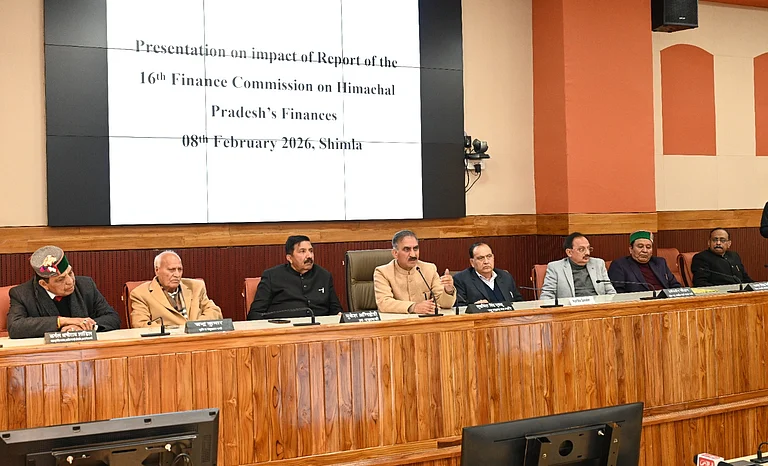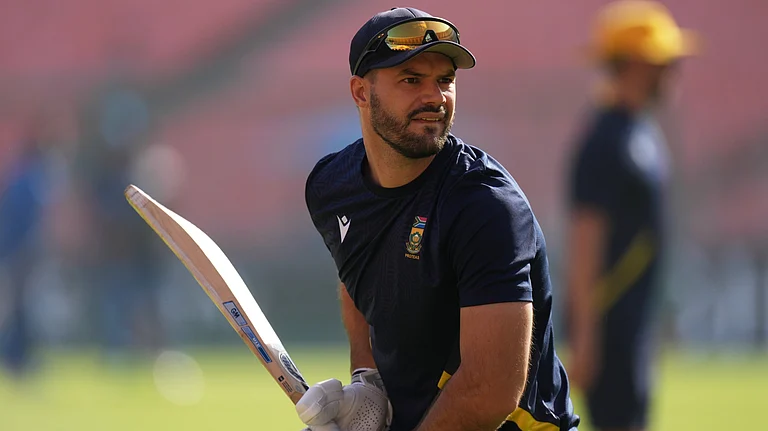As the only specialised surgeon in the centre capable of performing this complex operation, Jyoti tries to put things right. Sometimes he wins, sometimes he doesn’t. If he had left the army and joined a private hospital, he would have been making a lot more money, about Rs 20,000 for every operation. But the doctor in him forced him to stay, because "there is a certain satisfaction here".
He is not just the rare doctor here. Over the years, he has also become somewhat an avuncular figure for the traumatised patients, the one who counsels, befriends and even scolds. The soldiers, they love him as do their families. Jyoti, meanwhile, also has other roles to play. He is also an administrator, trying to keep the centre afloat despite a dearth of funds. There are 70 inmates now, many of them victims of Kargil. Jyoti has to manage his resources carefully because the funds amount to just Rs 59,000 per patient a year. "I can battle the shortage of funds but I find convincing the corporates to give a chance to these handicapped soldiers more difficult." Thirty-two of the more fortunate inmates—who have movement in their arms—are employed in the workshop of an American company called Amphenol, which deals in electronic connectors. "These boys work better than even the able-bodied. They work for 24-hours a day sometimes to meet deadlines. They want to prove that they are as good as the rest. But, sadly, the corporate segment fails to listen. I have pleaded with some corporates to give them a chance, employ them in the factories or elsewhere. But they feel that these soldiers will only be a liability." Obsessed with giving a decent life to the wounded soldiers, most of whom will never be completely cured, Jyoti is also moving the army machinery to get the wives and other family members jobs with the defence sector.
Jyoti also tries to give hope and confidence to the paralysed soldiers, some of whom suffer from grave depression. "Some of the soldiers go to visit their native towns and return dejected because they feel nobody wants them. These were men who were strong and healthy once upon a time. They need a lot of love and understanding. They don’t need sympathy. Just an opportunity to live like other men. And that’s what I want to provide."Jyoti’s association with the Indian army goes back to 1967 after he "raised the hand" when a senior army official asked a medical class who would like to join the army. He was supposed to be relieved after three years, "They asked me to stick on. Then the ’71 war came. And I did. Simple." In ’71, "they" gave him a gallantry award. In ’74, he found himself involved in the inception of the rehabilitation centre and has been "hopelessly busy" ever since. For a man who has reasons to believe that no war is ever won, Jyoti still hasn’t developed hatred for the word. "It’s an evil we have to live with. In the history of humanity, there has always been war. Only the reasons have changed." His own 34-year-old son is out there, "five km from the Pakistan border, waiting with a gun to shoot the enemy".
For more details, contact Lt Colonel S.P. Jyoti, medical director, Paraplegic Rehabilitation Centre, Park Road, Kirkee, Pune-411 020 (Maharashtra), Ph: 020-5810600.




















